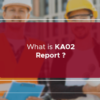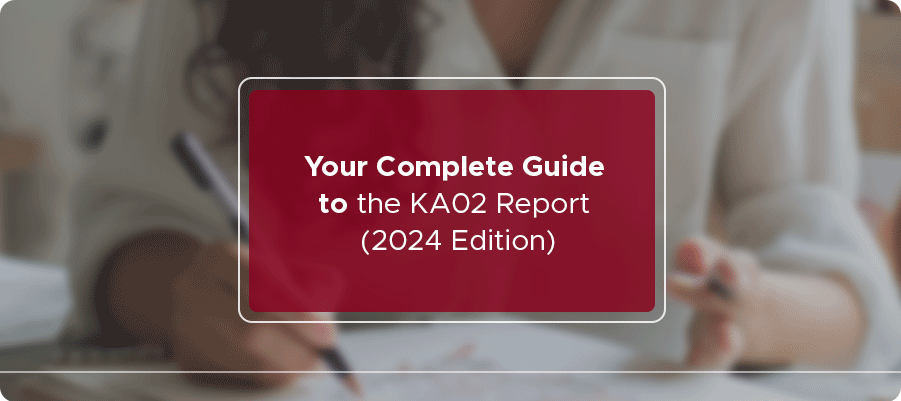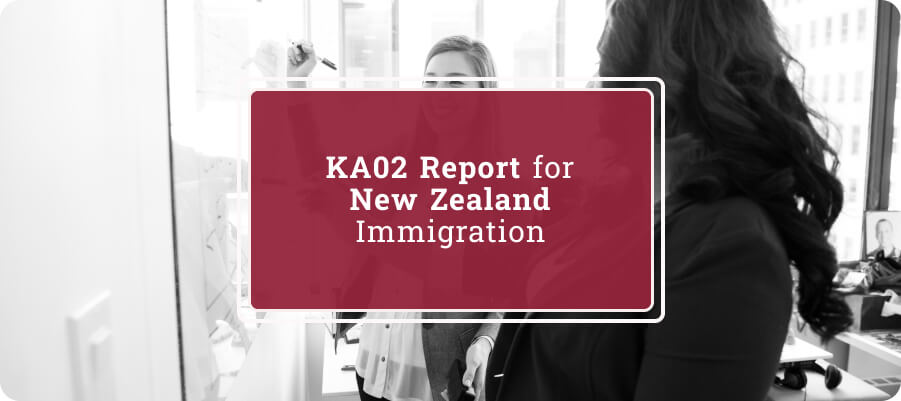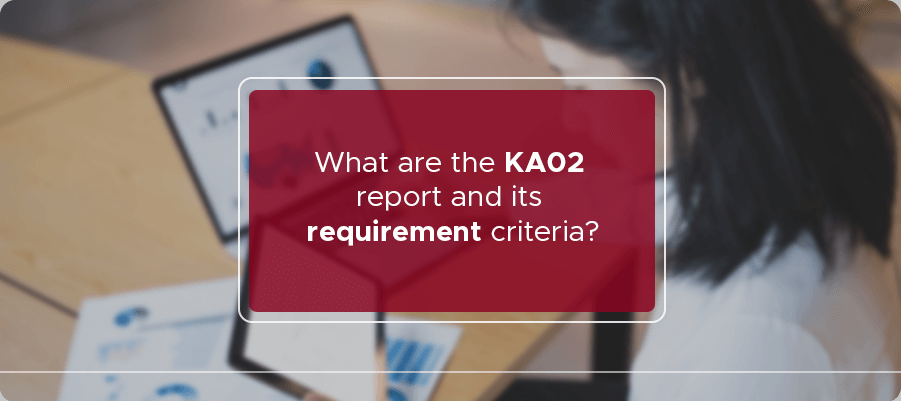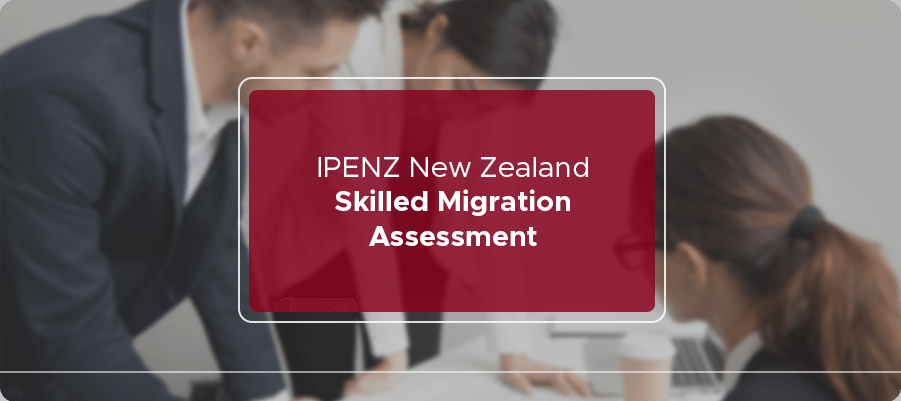
IPENZ New Zealand Skilled Migration Assessment
The IPENZ is now known as Engineering New Zealand. IPENZ stands for Institution of Professional Engineers New Zealand and is a professional organization for engineers in New Zealand. This IPENZ New Zealand Skilled Migration, a not-for-profit organization consists of about 22,000 members.
Here, the members encompass engineers and people interested in engineering. The IPENZ requires applicants willing to migrate to New Zealand to possess some necessary skills. Before relocating to New Zealand, they must submit a KA02 report. So, the IPENZ assesses the skills of the candidates with insufficient engineering qualifications. The engineering professionals from other countries must show that they have the knowledge and work experience to IPENZ for New Zealand Skilled Migration.
CDRReportWriters is the most dependable and trusted source for Skilled Migration New Zealand KA02 reports. We are specialists in producing and delivering KA02 reports to applicants, assisting them in avoiding IPENZ New Zealand rejection. There are several rules for writing KA02 reports, and our writers know them. As a result, they generate flawless reports for New Zealand skilled migration.
Engineers from all disciplines, including Civil, Aerospace, Chemical, and Mechanical, are welcome to contact us for a KA02 report for IPENZ competence evaluation. We have successfully assisted applicants from different countries in passing the IPENZ competency examination, easing their migration to New Zealand.
What is the IPENZ competency assessment?
The IPENZ (Institution of Professional Engineers New Zealand) Competency Assessment is a process used by the Institution of Professional Engineers New Zealand (IPENZ) to assess the qualifications and experience of engineers seeking to become chartered professional engineers in New Zealand. The assessment gets designed to ensure that engineers registered with IPENZ meet the required competency and expertise to practice as experienced engineers in New Zealand.
The assessment process typically includes evaluating the engineer’s education, work experience, and professional development activities. Engineers may be required to provide their CVs, transcripts, and references to support their application. They may also be required to attend an interview and complete a written or practical assessment.
The IPENZ Competency Assessment is mandatory for New Zealand engineers who wish to become chartered professional engineers. Engineers who pass the assessment get granted the title of Chartered Professional Engineer (CPEng), which gets recognized as a mark of professional competence and expertise in engineering.
It is important to note that the IPENZ competency assessment is specifically for engineers seeking to work in New Zealand, which is different from other countries’ assessment processes.
IPENZ competency assessment is an opportunity for the Engineers whose Washington Accord does not accredit qualifications or Universities to showcase their skills to be eligible for New Zealand Skilled Migration. The professional engineers must prove via KA02 Skill Assessment that they are qualified with skills and have enough engineering knowledge to be considered by IPENZ for migration.
Must Read: Everything you need to know about the Migration Skills Assessment. ✍️✍️
IPENZ Competency Assessment Report Types
For the New Zealand Skills Assessment of IPENZ, any one of the reports mentioned below can get submitted by the applicants:
Those applicants who graduate from a University of the countries that the Washington Accord accredits should submit the KA01 report to IPENZ for skill assessment. Applicants from Universities that follow the guidelines of New Zealand universities should also submit this report.
Those applicants who have graduated from a university not affiliated with the Washington Accord or any other universities of New Zealand should submit the KA02 report to IPENZ for skills assessment.
The Institution of Professional Engineers New Zealand (IPENZ) offers several types of competency assessment reports for engineers seeking to practice in New Zealand:
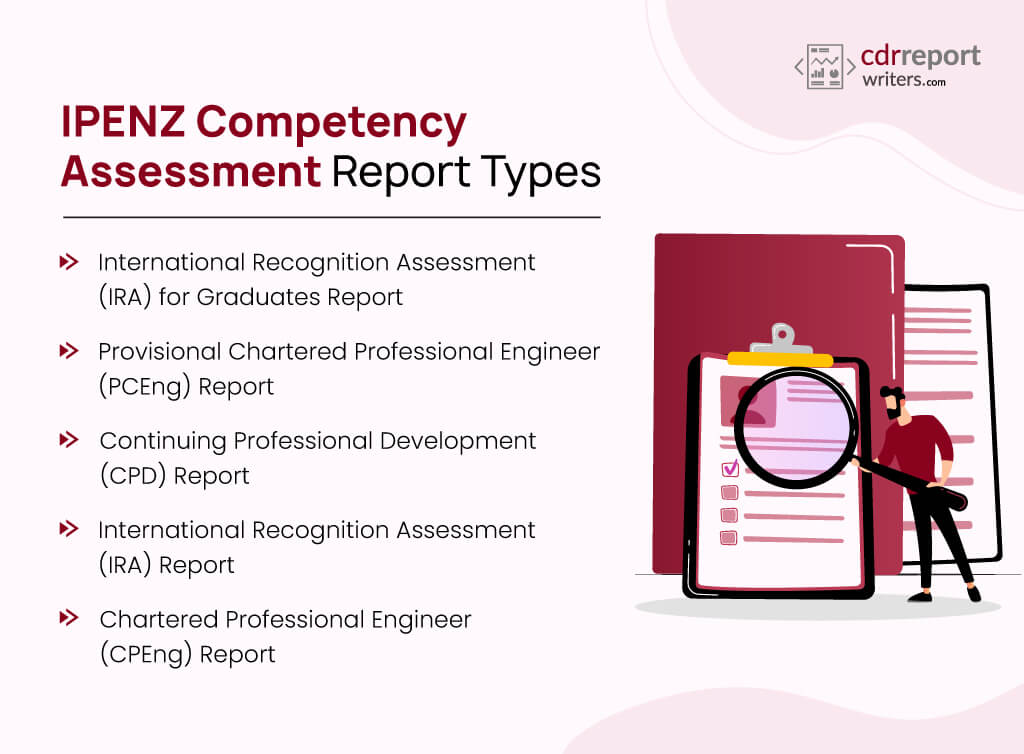
-
Chartered Professional Engineer (CPEng) Report
This report gets intended for engineers who wish to become Chartered Professional Engineers (CPEng) in New Zealand. The report assesses the engineer’s qualifications, work experience, and professional development activities to ensure that they meet the required standard of competency and knowledge to practice as professional engineers in New Zealand.
-
Provisional Chartered Professional Engineer (PCEng) Report
This report gets intended for engineers who still need to be fully qualified but have the potential to become Chartered Professional Engineers (CPEng) in New Zealand. The report assesses the engineer’s qualifications, work experience, and professional development activities to ensure that they meet the required standard of competency and knowledge to practice as professional engineers in New Zealand.
-
International Recognition Assessment (IRA) Report
This report gets intended for engineers who are already registered as professional engineers in another country and wish to practice in New Zealand. The report assesses the engineer’s qualifications, work experience, and professional development activities to ensure they meet the required competency and expertise to practice as professional engineers in New Zealand.
-
International Recognition Assessment (IRA) for Graduates Report
This report gets intended for recent engineering graduates who still need to be registered as professional engineers in another country but wish to practice in New Zealand. The report assesses the engineer’s qualifications, work experience, and professional development activities to ensure they meet the required competency and expertise to practice as professional engineers in New Zealand.
-
Continuing Professional Development (CPD) Report
This report gets intended for engineers who are already registered as Chartered Professional Engineers (CPEng) in New Zealand and wish to maintain their registration. The report assesses the engineer’s continuing professional development activities to ensure that they meet the required standard of competency and experience to practice as professional engineers in New Zealand.
It’s important to note that the type of report required may depend on the stage of your career and your qualifications; IPENZ should be consulted for the most accurate information on what type of report is suitable for your case.
Learn More: The Ultimate Guide to Write a Professional Career Episode 📖✈️
The process of IPENZ New Zealand Skilled Migration Assessment
Below is the overview of the process that the organization follows to assess the eligibility of the applicants for the operation of the IPENZ New Zealand Skilled Migration Assessment:
People 55 years or younger who possess the skills necessary for the country’s economic growth can only apply for New Zealand’s skilled migration visa. It enables you to live, study and work in the country forever. You can include your spouse and children who are 24 or younger in the application. Recently, only those whose visa application scores 160 points or more have been eligible for this visa.
You must show your skills in your visa’s ‘Work Experience’ section. The professional engineers must submit a KA02 form to prove their skills and a Knowledge Assessment for evaluation by Engineering New Zealand (previously known as IPENZ).
The KA02 form consists of the following five steps:
1. Instructions and Guidance
Demonstrate that your skills and knowledge are better enough to solve ‘complex engineering problems.
Specify your engineering discipline and field.
Prepare the Knowledge Assessment form to prove that you match the knowledge profile of the Washington Accord.
2. Knowledge Profile
Provide evidence of your knowledge level appropriately by carefully reviewing all the context and performance indicators.
Please provide a summary of fundamental aspects of your knowledge describing each component of the Knowledge Profile (along with how you acquired and developed the skills).
It would help if you focused on the advanced projects you carried out and later used those skills to solve real-life problems.
Write your material in the first person using ‘I’ or ‘me’ rather than ‘we’ or ‘us,’ which helps the assessors know your contribution.
3. Evidence of Application of Knowledge
Describe 3-4 engineering projects or activities you have to get involved with that help showcase your ability to apply your engineering knowledge to solve complex engineering problems.
If you have limited practical experience, post-graduation, project work carried out during your study is probably the best way of illustrating the application of your knowledge.
To validate your work/career episodes, you must include genuine samples of your work, such as calculations, analyses, or reports that you have carried out personally, to validate your work/career episodes.
4. Supplementary Evidence
You must submit its certified copy if you still need to submit your academic transcript(s) (the official record of papers taken and grades received) to the IPENZ.
Summarize the history of your work but comprise a demonstrative sample of particular engineering projects or activities that evidence the development or application of the knowledge profile.
List only some of your CDP activities. Instead, provide details of those activities that have prolonged your professional engineering knowledge in your discipline and field and have helped you enhance a professional engineer’s knowledge profile.
5. Payment
To start the knowledge assessment process, you must pay the IPENZ New Zealand Skilled Migration fee.
How can CDRReportWriters help you in your IPENZ skill assessment?
The KA02 Knowledge Assessment is the initial stage and is crucial for applicants who want to go to New Zealand. They must complete and submit a KA02 report to IPENZ, which will assess the abilities of applicants who do not have or need more ICT. When submitting the KA02 report to IPENZ, you should follow several IPENZ skill evaluation rules. CDRReportWriters can help you.
We are ready and experienced in providing top-quality KA02 reports to the IPENZ New Zealand Skilled Migration Assessment applicants.
Our team of writers is highly qualified and skilled and has an in-depth knowledge of regulations and guidelines for writing IPENZ KA02 reports.
Our writers understand the applicants’ requirements correctly and prepare the reports according to their skills and knowledge.
We provide 100% free plagiarism-free reports at an affordable price. We also offer a complete KA02 report reviewing service. As our writers are from diverse engineering fields, we can write for applicants from different areas.
Frequently Asked Questions
When did IPENZ change to Engineering NZ?
IPENZ changed its name to Engineering NZ on the 1st of October 2017 so that it becomes clearer to understand what they stand for. However, the legal name of the organization still remains “Institution of Professional Engineers New Zealand”.
Is there a shortage of engineers in New Zealand?
Yes, there exists a shortage of skilled engineers in New Zealand. There are lots of jobs for engineering professionals that New Zealand has listed in its Immigration skill shortage lists. Therefore Engineering NZ was established to make it easy for engineering professionals to migrate to New Zealand.
How long does it take to get a skilled migrant visa for New Zealand?
The time for you to get a skilled migrant visa for New Zealand depends upon the priority of your application. On average, if you are a prioritized applicant, it can take 4 to 7 months, whereas if you are a non-prioritized applicant, it can take 10 to18 months to get a skilled migrant visa for New Zealand. Nonetheless, processing time can vary over time.
How do I become a registered engineer in New Zealand?
To become a registered engineer or chartered professional engineer in New Zealand, you need to:
- Complete Honors or Bachelor in Engineering qualification accredited by Washington Accord or be able to demonstrate equivalent knowledge.
- Demonstrate your competency by completing an assessment (prepare and submit a KA01 or KA02 report to Engineering NZ).
- Follow the Code of Ethical Conduct of the CPEng.
- Maintain your CPEng registration by being reassessed every six years.

